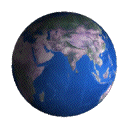Dutch MPs to decide on burqa ban
By Mark Mardell Europe editor, BBC News, Brussels
The Dutch Parliament has already voted in favour of a proposed ban.The Dutch government will announce over the next few weeks whether it will make it a crime to wear traditional Islamic dress which covers the face apart from the eyes.
The Dutch parliament has already voted in favour of a proposal to ban the burqa outside the home, and some in the government have thrown their weight behind it.
There are only about 50 women in all of the Netherlands who do cover up entirely - but soon they could be breaking the law.
Dutch MP Geert Wilders is the man who first suggested the idea of a ban.
"It's a medieval symbol, a symbol against women," he says.
"We don't want women to be ashamed to show who they are. Even if you have decided yourself to do that, you should not do it in Holland, because we want you to be integrated, assimilated into Dutch society. If people cannot see who you are, or see one inch of your body or your face, I believe this is not the way to integrate into our society."
'Identifiable'
I interviewed Mr Wilders inside parliament after several security checks. Two tough bodyguards stood close by throughout. This country, once the epitome of easy-going liberalism, is edgier, less tolerant these days.
Mr Wilders has explicitly linked his wish for a burqa ban with terrorism.
"We have problems with a growing minority of Muslims who tend to have sympathy with the Islamo-fascistic concept of radical Islam," says Mr Wilders.
"That's also a reason why everybody should be identifiable when they walk on the street or go to a pub or go into a restaurant or whatsoever."
By Alexandra Hudson March 7, 2006
AMSTERDAM (Reuters) - If the Netherlands becomes the first European country to ban the burqa and other Muslim face veils this month, Hope says she'll resort to wearing a surgical mask to dress in accordance with her religious beliefs.
"I'll wear one of those things they wore during the SARS epidemic if I have to," said the Dutch-born Muslim, one of about 50 women in the Netherlands who wear the head-to-toe burqa or the niqab, a face veil that conceals everything but the eyes.
"I'm very practical," the 22-year-old added.
Last December, parliament voted to forbid women from wearing the burqa or any Muslim face coverings in public, justifying the move in part as a security measure.
The cabinet is awaiting the results of a study into the legality of such a ban under European human rights laws, before making its final decision. The results are expected in the second half of this month.
"This is an enormous victory for traditional Dutch decency," said Geert Wilders, the populist member of parliament who first proposed the burqa ban, after hearing parliament had backed it.
"The burqa is hostile to women, and medieval. For a woman to walk around on the streets completely covered is an insult to everyone who believes in equal rights."
The Dutch may have been among the first to legalize cannabis, prostitution and euthanasia -- earning them a reputation for tolerance -- but they are now in the process of imposing some of Europe's toughest entry and integration laws.
Social and religious tensions have escalated in recent years, exacerbated by the murder of columnist and director Theo van Gogh by a Dutch-Moroccan militant in 2004 after he made a film accusing Islam of condoning violence against women.
His murder, and that of anti-immigration populist Pim Fortuyn two years earlier, deeply unsettled the country and provoked an anti-Muslim backlash, as well as much soul-searching about the make-up and cohesion of Dutch society.
IGNORANCE
Famile Arslan, a Dutch-Muslim lawyer, believes a ban would only reinforce today's polarized climate, and prompt more women to wear the niqab as a form of protest.
"We are very scared that what starts with a ban on the burqa will end with a ban on the hijab," she said, referring to the Muslim headscarf worn by thousands in the Netherlands.
"A country once known for its tolerance is now becoming known for its ignorance," she added, stressing public opinion of the Netherlands' 1 million Muslims had hit an all-time low.
About a third of the country's Muslims have Moroccan ancestry, while Dutch-Turks form another sizable community.



















